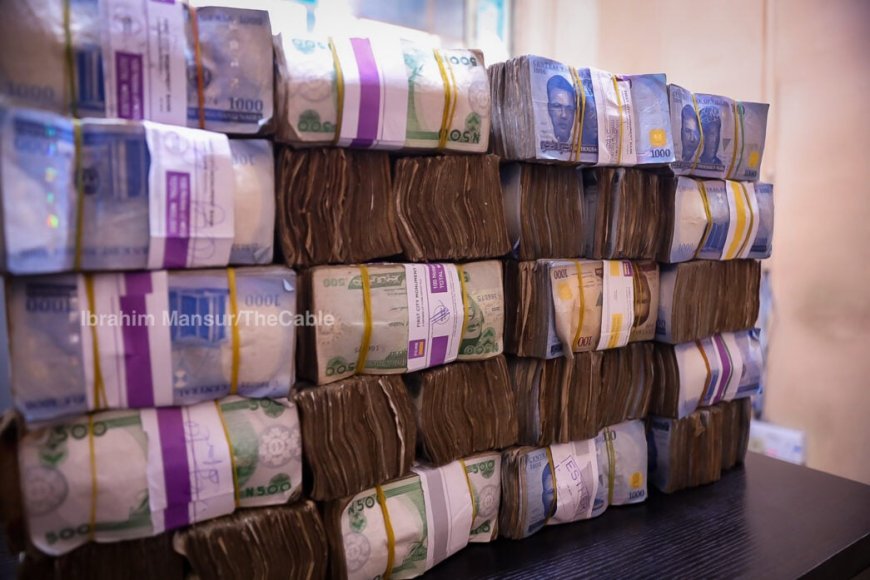Money supply increased to N109.4trn in December 2024, says budget office

The budget office of the federation says money supply (M2) in the country rose to N109.41 trillion in December 2024.
The M2 money supply category broadly measures the total amount of money circulating in an economy, including cash, demand deposits, savings, money market securities and other less liquid assets such as time deposits.In its budget implementation report for the fourth quarter (Q4) of 2024, the office said the money supply increased by N3.92 trillion or 3.59 percent from the N105.49 trillion recorded in September that year.The report said the 2024 Appropriation Act, tagged ‘Budget of Renewed Hope’, was designed to advance the government’s strategic objectives of improving the macroeconomic environment, investing in infrastructure and human capital, and promoting growth in key job-creating sectors.
“Monetary aggregates increased in the review period relative to the third quarter of 2024. Broad Money Supply (M2) increased by N3,924,365.38 million (3.59 percent) to ₦109.41 trillion in December, 2024,” the office said.
“Net Domestic Asset (NDA) decreased by 3.26 percent (₦2.75 trillion) from ₦84.14 trillion in September to ₦81.39 trillion in December, 2024. The development in NDA was due to the adjustment in Net Domestic Credit (NDC) during the period.“Net Domestic Credit (NDC) decreased by 8.75 percent (₦10.09 trillion) from N115.25 trillion in September to ₦105.16 trillion in December, 2024.”
‘CREDIT TO GOVERNMENT DECREASED BY N12.3TRN IN Q4 2024’
The budget office said the decline in net domestic credit was influenced by reductions in credit to the government and moderate growth in credit to the private sector.
The report said net credit to the government decreased by 31.23 percent (N12.32 trillion) — from N39.46 trillion in September to N27.14 trillion in December 2024.
Credit to the private sector reportedly increased by 2.95 percent (N2.24 trillion), from N75.78 trillion in September to N78.02 trillion in December 2024.
At the last monetary policy committee meeting (MPC) held in September, Olayemi Cardoso, governor of the Central Bank of Nigeria (CBN), said money supply increased by N35 trillion within eight years due to ways and means advances.
The CBN governor said between 2015 and 2023, the country’s money supply rose from N19 trillion to N54 trillion.
He said the increase was driven mainly by the printing of money through the ways and means mechanism, which led to an alarming rate of liquidity into the economy.
The central bank recently introduced a 75 percent cash reserve ratio (CRR) on non-treasury single account (TSA) public sector deposits to guard against liquidity risks from the government, following concerns over rising liquidity in the system.
Non-TSA public sector deposits are government-related funds (ministries departments, agencies, parastatals, or state-owned entities) that are still kept in commercial banks instead of the TSA.









